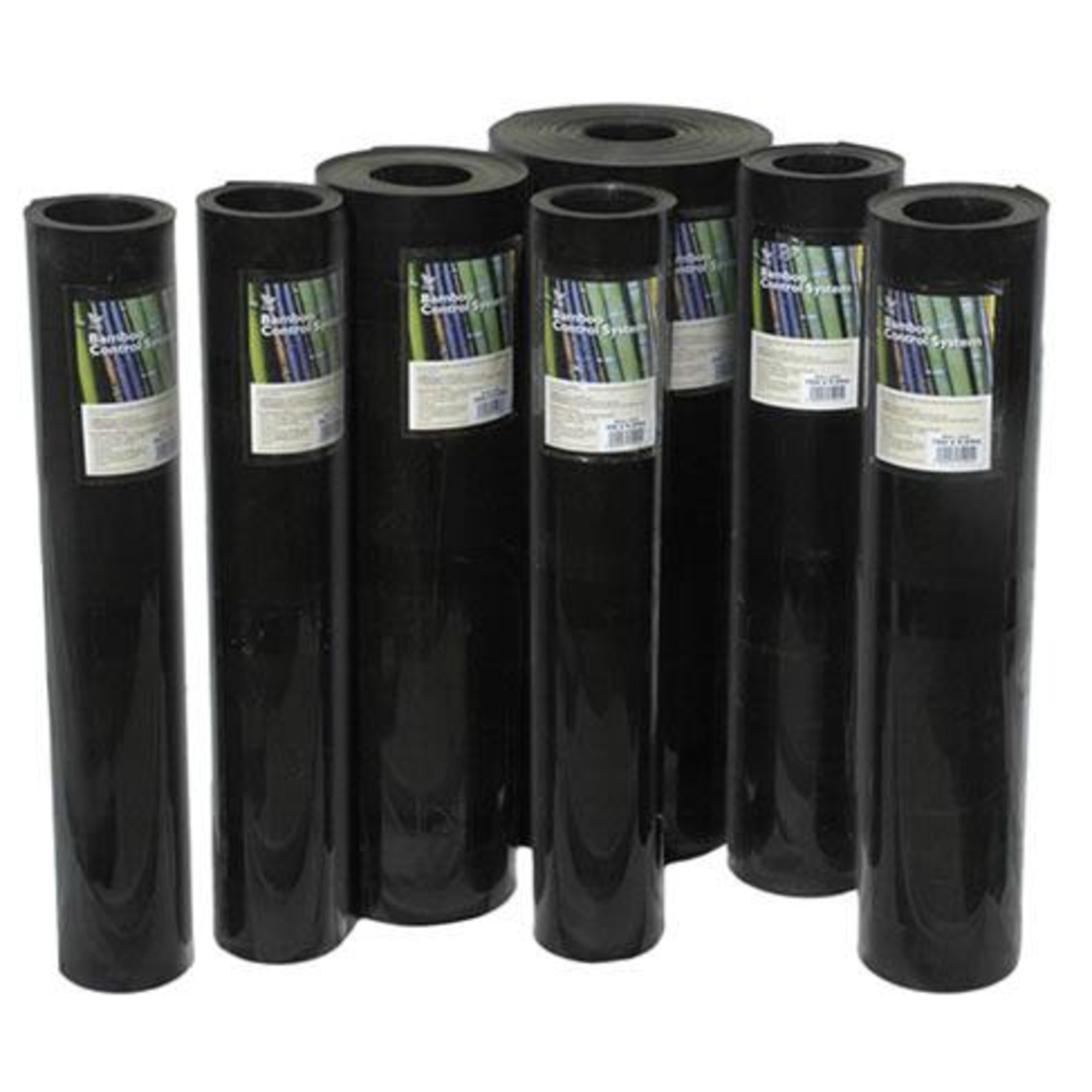Concerned about the risk of invasive bamboo? UK garden and property experts weigh in with essential advice
Invasive menace or stylish screening plant? Everything you need to know about growing bamboo safely to prevent damage to your property
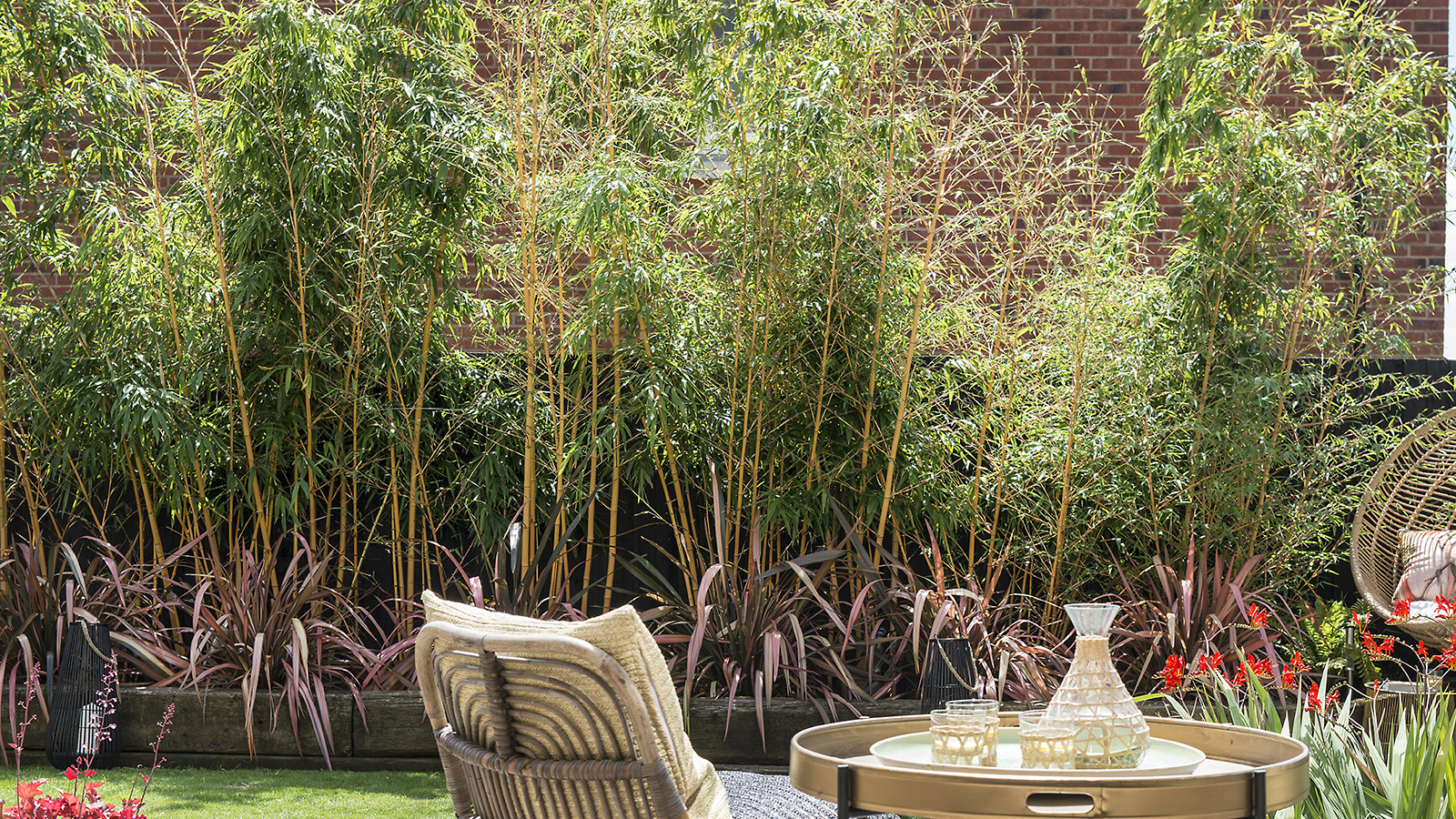
There's been a lot of noise about the invasive nature of bamboo, and whether growing it in a garden is a bad idea. However, it's still very much available to buy as a garden plant, which understandably creates confusion for homeowners.
Invasive bamboo can damage structures, cause neighbour disputes and is even beginning to impact house sales. Not to mention knowing how to kill bamboo that's overgrown can be challenging and costly.
You may well be wondering, if it's so fraught with potential complications, why are there currently no restrictions on buying and growing this plant? Well, it's worth being aware that before Japanese knotweed became Public Enemy Number One it was sold in the UK as an ornamental plant.
"Bamboo is a common choice for those looking for a plant that's fast-growing and has major visual appeal, but if not planted correctly, it can quickly become a nightmare for homeowners," says Andrew Boast, a property expert and CEO of SAM Conveyancing.
Therefore it's important to exercise caution before planting it, and be aware of the dangers that an out-of-control bamboo can cause to your property.

Andrew Boast is the CEO, Executive Director & Co-Founder of SAM Conveyancing, and has over 23 years of experience in the home and conveyancing market. Andrew is an accomplished expert in his field, guiding thousands of clients through the complex process of buying a home both personally and through his teams of expert solicitors, surveyors and mortgage advisers at SAM Conveyancing, and has been featured in many top-tier publications including on the BBC, The Telegraph, Bristol Live, Yahoo and more.
Invasive bamboo: what to know
“Bamboo is a traditionally popular method of providing natural privacy to gardens, but there are several invasive bamboo plants that can damage your home as they can spread quickly and be hard to control, let alone maintain," says director of Benham and Reeves and property specialist, Marc von Grundherr.
"In fact, they can extend as much as 30 feet below the ground, as well as crossing boundaries which can cause issues with neighbours."
This means that getting rid of bamboo can be almost as troublesome as killing Japanese knotweed.
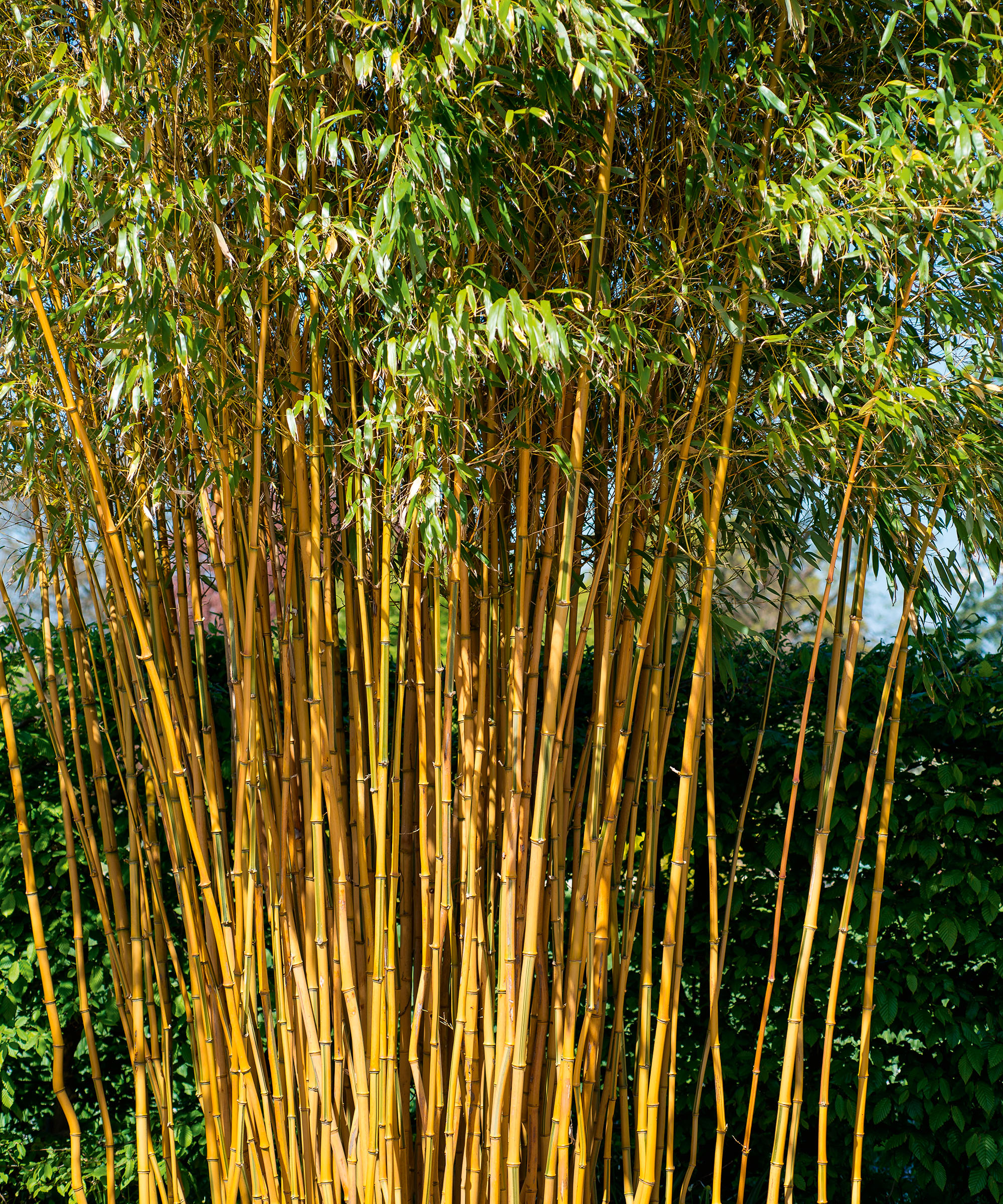

Marc von Grundherr has decades of property market experience, having originally joined Benham and Reeves in 1995 where he now holds the position of director. Marc is not only an extremely knowledgeable and well established estate agent both within the London market and across Benham's 13 international branches, but he is also a property investor and buy-to-let landlord himself.
How bamboo can damage your home
"The bamboo plant has an invasive root system made up of rhizomes, like bindweed, which grow horizontally underground. Due to the nature of this system, bamboo roots can spread rapidly. Before you know it, it will have worked its way into far more of your garden than you expect, and more worryingly, your home's foundations," says Andrew Boast.
"If bamboo roots manage to reach your foundation they can cause serious, hard-to-repair damage. Often, these roots will grow into existing small cracks that, if left alone would usually be fine, but the expansion of the cracks by the roots can lead to subsidence issues," he warns.
"Subsidence is when the ground beneath your home starts to sink, which can be attributed to the growth of aggressive plant roots like those from bamboo. If left untreated, this can lead to significant structural damage such as cracks in walls or uneven floors which can be costly to repair and make your home far less safe."
"Bamboo can also wreak havoc on your drainage systems as the roots can penetrate piping, causing blockages and cracks that can lead to leaks," adds Andrew.
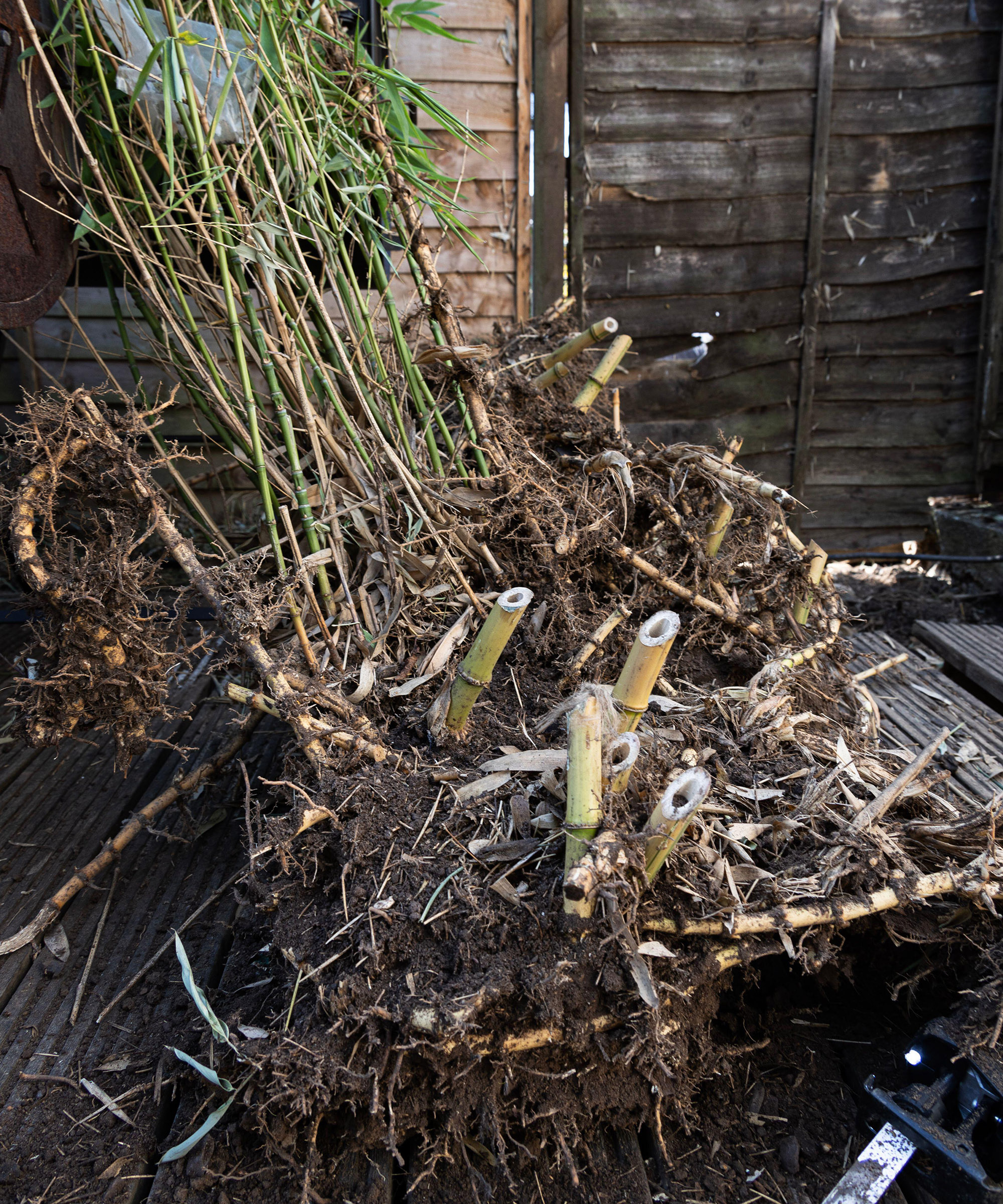
UK bamboo legislation
"While it’s now being likened to the notorious knotweed, there are currently no controls on bamboo and, unlike Japanese knotweed UK Law, you don’t need to declare its presence when selling. However, with the potential issues of bamboo becoming more widely talked about, homebuyers are certainly becoming more savvy and it’s no doubt becoming a modern-day deterrent," says Marc von Grundherr.
"In terms of saleability, you really want to avoid anything that can impact the integrity of your property or any neighbouring property. Invasive bamboo species have been known to push through brickwork, as well as damage drains, patios and cavity walls, so it certainly falls within this category," says Marc.
Japenese knotweed removal costs can exceed £5k, and removing a bamboo plant that has become invasive is also expensive.
"Bamboo can be tricky to remove and can cost as much as £3,500 plus VAT, so a potential buyer may take this home repair costs into account when making an offer," says Marc.
"However, if you have a serious problem with bamboo it’s likely to cost you a lot more, and the presence of uncontrollable invasive bamboo is usually reported to potential buyers during house surveys."
"It’s thought that Japanese Knotweed impacts property prices by an estimated 15% and with invasive bamboo causing similar issues, that’s a reduction in value of over £40,000 on today’s average house price," says Marc.
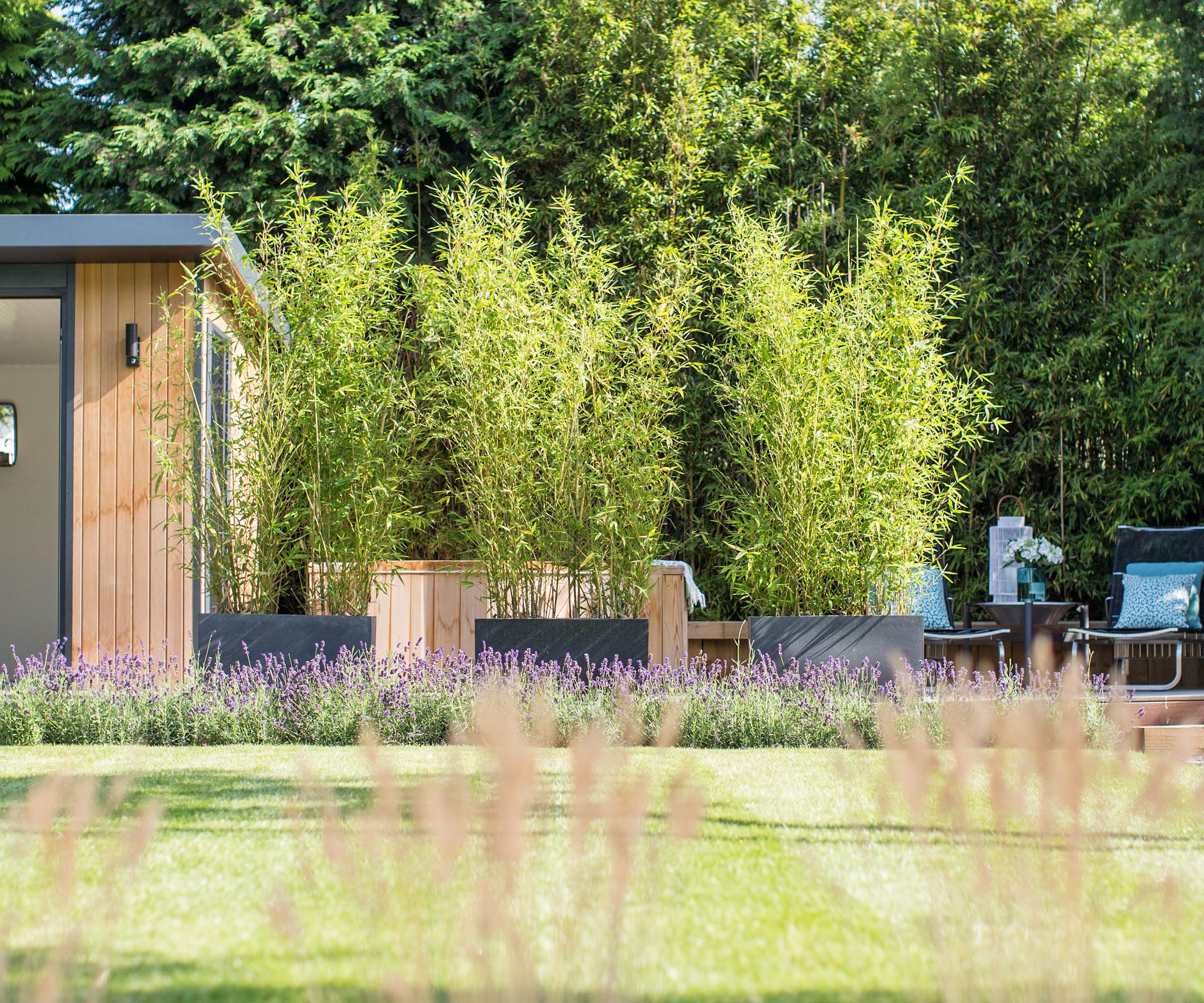
How to grow bamboo safely
"If you’re planting bamboo you need to contain its spread with root control barriers or by planting them in large pots. If you don’t do this the bamboo is probably going to become invasive and spread uncontrollably throughout your garden (which can impact your ability to make a sale)," says John Davis, construction expert and owner at Springfield Steel Buildings.
"I’d personally avoid bamboo altogether, but if you’re dead set on it you need to be able to commit to regular maintenance. Prune the bamboo regularly to control its growth, and remove any unwanted shoots that might pop up outside of its designated area in your garden," says John.
Whilst growing bamboo in pots is a possibility garden designer Rosemary Coldstream warns: "It hates being in a pot! It needs a lot of feeding and watering to stay looking good."
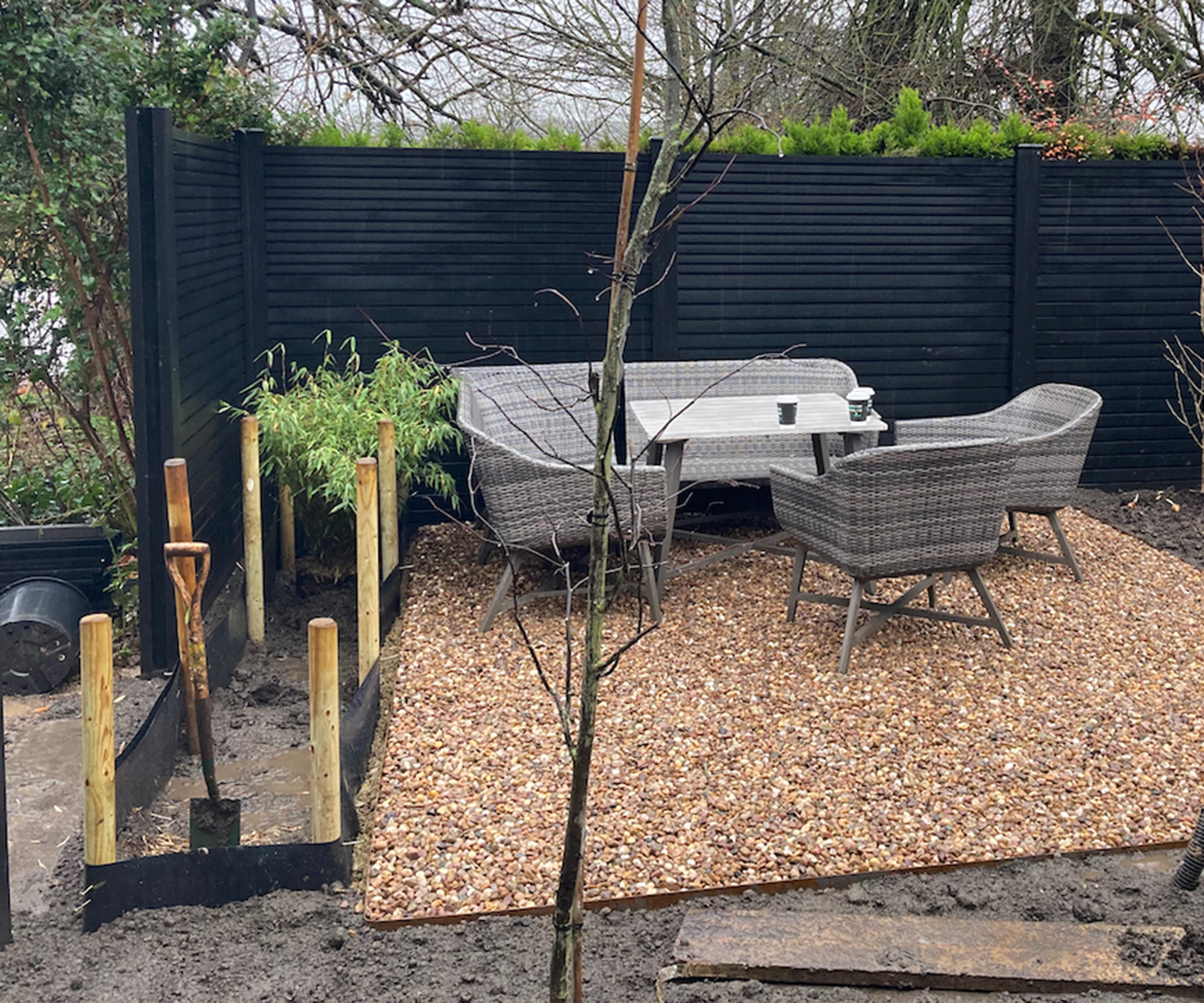
Shop bamboo root control barriers

It's essential to use a root barrier for all bamboo plants even if they're classed as less-invasive. You can add this rhizome barrier to the ground for existing bamboo plants but you will need to dig them up and remove all the excess rhizomes and shoots first.

John Davis possesses extensive experience in construction and land development. With a focus on sustainable building practices, he understands the importance of landscaping choices in relation to property value and environmental impact.
Good and bad types of bamboo
If you decide that none of our bamboo alternatives are right for you, then there are certain types to avoid more than others.
"Bamboo has a bad reputation but not all bamboos are rampant runaways. Some are more controlled in their growth but I would still advise using a root barrier or constrain with a well-made planter e.g. in Corten steel, to prevent them getting out of control, as they will still spread outside their initial space," says garden designer Sam Proctor of Chiltern Garden Design.
"Non-invasive varieties are those that are classed as clumping rather than sending out runners: Fargesia varieties include Fargesia Jiuzhaigou (red stemmed bamboo), Fargesia Nitida ‘Volcano’ (maroon stems) and Fargesia Rufa," says Sam.
Try Fargesia Volcano - Clumping Umbrella Bamboo at Gardening Express, or Fountain Bamboo Fargesia rufa at YouGarden which can be grown in pots.
Rosemary Coldstream urges that you will still need to put in measures to control the spread. "In the ground it has to have a root barrier membrane around it. Even then it will eventually spread and I know this from personal experience," she says.
Gardening expert John Clifford from Gardenstone advises that homeowners avoid any 'runners' which have long underground roots
"Some of these include Phyllostachys aurea, Pseudosasa japonica and Phyllostachys Nigra. These varieties are named 'runners' due to their fast spreading growth that can very easily become out of control," says John.
"Types known as 'runners' can end up going under patios and into houses. These are very difficult to remove and need a digger to get them out – and generally need spraying with a herbicide to eradicate entirely," says Rosemary.
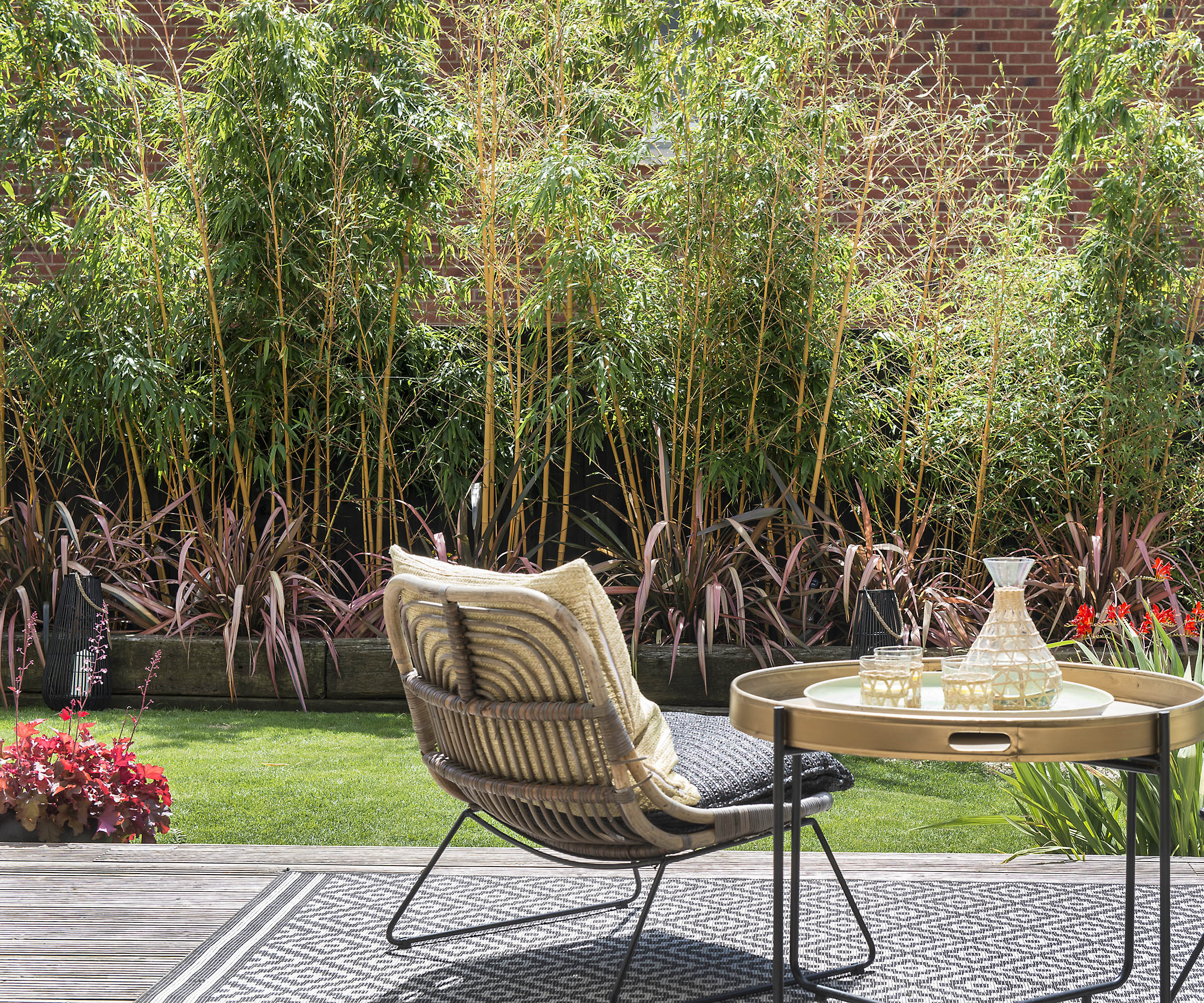

Sam has been creating beautiful gardens for over a decade. Since leaving a City career in marketing, she has honed her skills to a very high level, taking the Diploma in Garden Design at the prestigious London College of Garden Design, for which she was awarded a Distinction.
Safe alternatives to bamboo
After reading about the issues surrounding growing bamboo, you may feel it's not worth the effort. There are many safe alternative screening plants to grow which won't run amuck.
Garden designer Rosemary Coldstream suggests her favourites below:
- Evergreen shrubs: choose those on tall frames, such as Euonymus, Ilex or Elaeagnus
- Pleached trees: common choices are hornbeam, crabapple, lime and beech
- Layered planting: trees and shrubs to get the full ‘green’ coverage’
- Climbers: trained up fences and trellis. Trachelospermum jasminoides is mostly evergreen
- Tropical choices: for an exotic look try big leaved plants such as Fatsia jaonica, x Fatshera lizei (on a frame or fence) or Eriobotrya japonica (loquat) - the latter does better in the South East or a sheltered spot.
- Phillyrea angustifolia: for a similar leaf to bamboo but in grey-green like an Olive. It can be pruned to shape or left loose.
- Osmanthus: as shrubs or small trees - these are evergreen and can be pruned to shape


Rosemary Coldstream is one of the UK’s leading garden designers, a multi-award winning designer in recent years. A native New Zealander, she has lived and worked in the UK for 30 years, studying garden design at Capel Manor College in London.
Bamboo and your neighbours
As previously mentioned, there are currently no restrictions under UK law around growing bamboo. However, this doesn't mean there is a complete lack of impunity for you or your neighbours to grow bamboo.
Overgrown bamboo can encroach on your neighbour's property so you would have a responsibility to rectify this problem. If planning to plant bamboo, you would need to ensure there is a sufficient barrier in place to stop this from happening.
You may even choose to discuss the decision to plant bamboo with your neighbours before going ahead with it so you can address any concerns they might have. You should ensure you choose non-invasive varieties and clumping varieties, as well as installing root barriers.
"Likewise, if you notice your neighbour has bamboo in their garden it is important to speak to them as the roots can easily grow out of control and make their way under your property as well," says John Clifford.
The local council may become involved if bamboo does become an issue outside the bounds of its property and the owner will be required to rectify the problem.
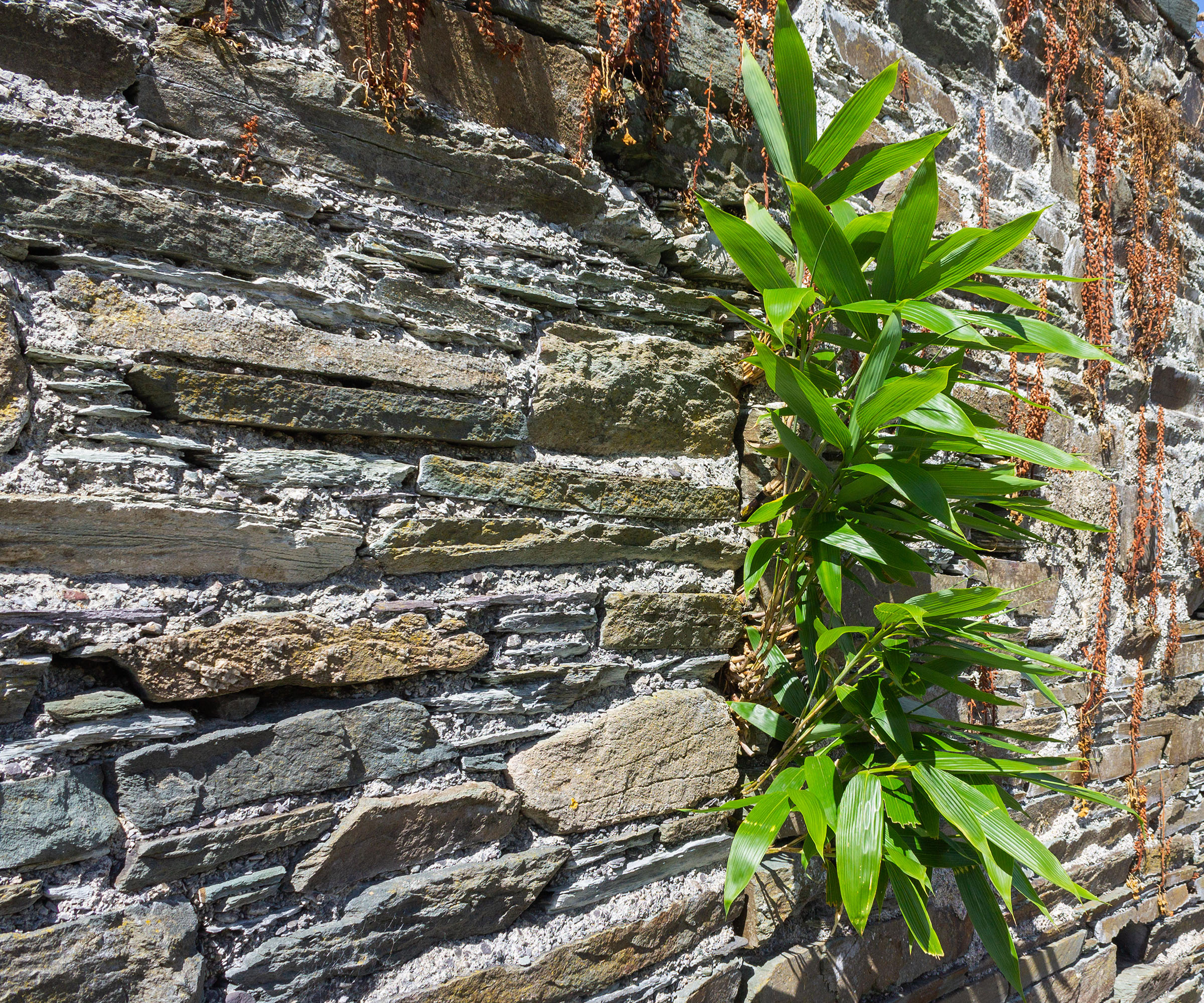
FAQs
Is bamboo invasive in the UK?
Though it's not technically classed as invasive by law in the UK, most bamboo species can spread beyond their intended growing spot if left unchecked.
"This plant grows very tall, in some cases reaching up to eight metres in height. The biggest problem with bamboo is from more invasive types which can spread tens of metres through long rhizomes and start growing where you don’t want it," says garden expert at MyJobQuote Fiona Jenkins.
"Clump-forming bamboo species are not as invasive but if the conditions are right, they too can spread beyond their initial planting spot. Bamboo roots are so destructive that they can undermine house foundations, dislodge fencing and even overrun neighbouring properties."
"Though regarded as a beautiful and versatile addition to your garden, especially since it can provide some level of privacy screening as well as a unique visual element, in my opinion, it’s not worth the aggravation and potential huge damage it can cause," says building expert John Davis.
"There are much safer alternatives on the market - consider using ornamental grasses like fountain grass or miscanthus. These plants offer a similar decorative effect without the aggressive spreading tendencies of bamboo," says John Davis

A landscaper and gardening expert with over 25 years of experience in the industry. Currently she works for MyJobQuote as their resident expert on all things gardening. She is highly knowledgeable and her expertise have featured in many reputable publications.
Can bamboo affect a house sale?
"Surveying for the presence of bamboo in UK gardens is increasingly becoming part of the house buying process. Unlike Japanese knotweed, which it is obligatory to report on a property information form, TA6 there is no such responsibility to mention the presence of bamboo in the garden," says garden expert Fiona Jenkins.
"However, buyers are becoming more aware of the risks of bamboo and its potential for damaging property and spreading to neighbouring gardens. As bamboo rhizomes can undermine foundations, this is a worry regarding the condition of the property as well as the possibility of disputes or legal action involving affected neighbours.
"The cost of removing bamboo as well as the future implications can and does put people off buying such a property. However, some buyers have successfully negotiated with the sellers to cover the cost of removal of bamboo with a guarantee of action if there is any regrowth within five years of completion," says Fiona.
If privacy is important to you in a garden, there are other ways to create it aside from growing bamboo. Check out our garden screening ideas for inspiration.
Get the Homebuilding & Renovating Newsletter
Bring your dream home to life with expert advice, how to guides and design inspiration. Sign up for our newsletter and get two free tickets to a Homebuilding & Renovating Show near you.

Teresa was part of a team that launched Easy Gardens in 2018 and worked as the Editor on this magazine. She has extensive experience writing and editing content on gardens and landscaping on brands such as Homes & Gardens, Country Homes & Interiors and Living Etc magazine. She has developed close working relationships with top landscape architects and leading industry experts, and has been exposed to an array of rich content and expertise.
In 2020 Teresa bought her first home. She and her partner worked alongside architects and builders to transform the downstairs area of her two bedroom Victorian house in north London into a usable space for her family. Along the way she learned the stresses, woes and joys of home renovation, and is now looking to her next project, landscaping the back garden.
